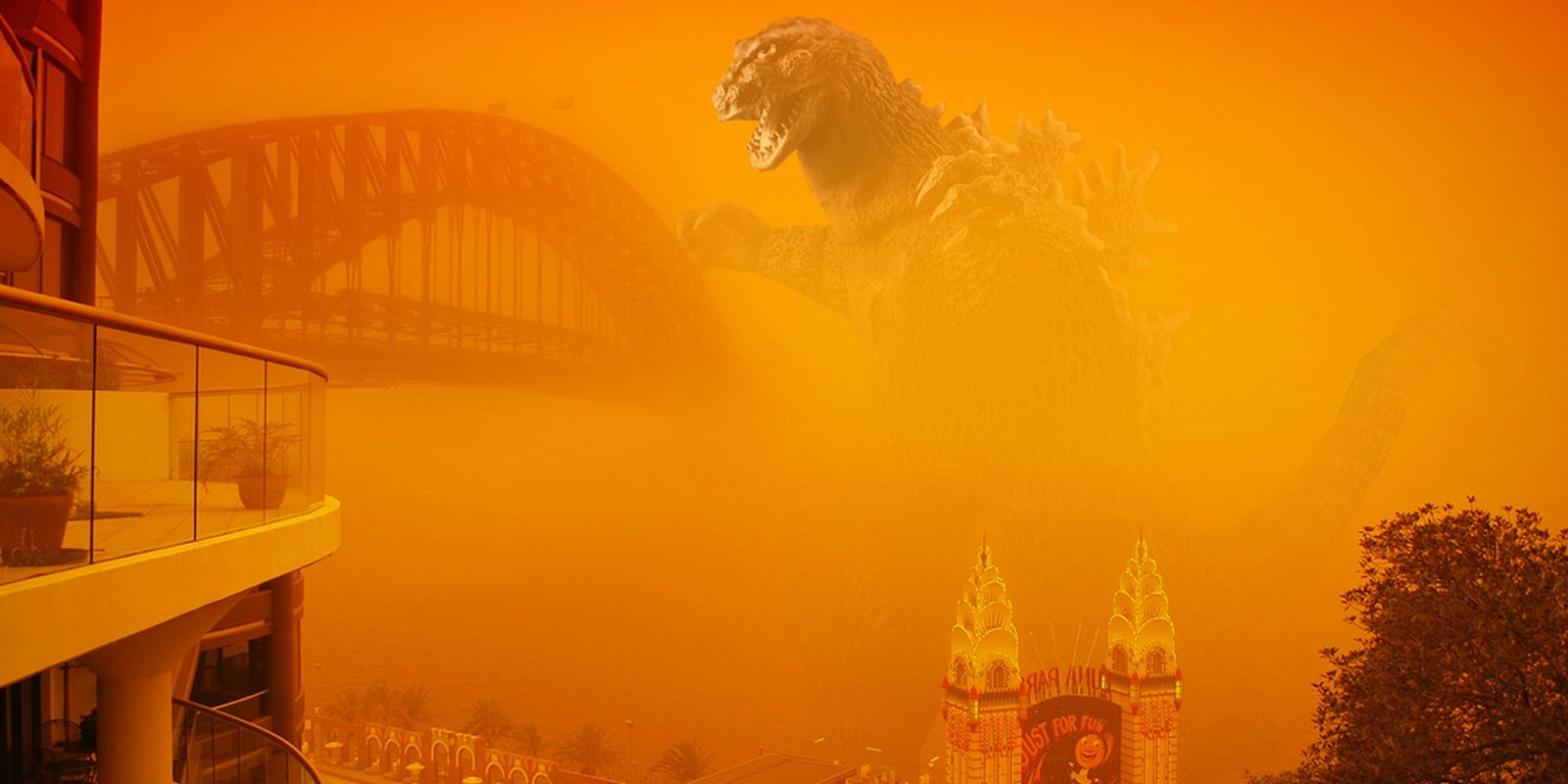These days, no one can escape fat-shaming, whether you’re the most beautiful woman in the world, a now-disgraced 2016 presidential hopeful or the Kool-Aid Man. Even giant apocalyptic lizard monsters are feeling the sting of our society’s complicated relationship with weight—after the new Godzilla made his full debut in a trailer released last week.
In earlier trailers for Gareth Edwards’ franchise reboot, the monster had been hidden, and as one Japanese fan put it: “When I finally saw [Godzilla], I was a bit taken aback.” Other Godzilla fans called him a “calorie monster” or “Godzilla deluxe,” quipping that the creature had “done a ‘super size me.’” The monster’s added girth made it difficult for these fans to take Godilla seriously, with one commenter on a Japanese forum saying that he couldn’t help but laugh at him.
Anyone who has ever walked through the halls of a middle school won’t be surprised that people are unkind about weight. While at the store buying butter and milk, a woman came up to XOJane writer Lesley Kinzel to urge her to buy skim milk and a reduced fat butter, reminding her that—as a fat person—her choices “are open to public scrutiny.” And when filmmaker Lindsey Averill shot “Fatitude,” an educational documentary that urges tolerance and a nuanced understanding of obesity, she received death threats.
These responses are a part of society’s deeply ingrained linkage between “good” and “bad” body types, in which to be fat isn’t just a personal failing, but a nationwide moral evil. In its 2012 war-on-obesity documentary, The Weight of the Nation, HBO warned viewers that “obesity will crush the United States into oblivion,” as if weight were its own nuclear waste monster crushing our cityscapes.
Author and fat acceptance activist Marilyn Wann once argued that you can’t tell much about someone from the size of their waist, but you can tell a lot about society by how we respond to it. The case of Godzilla shows just how far our fatphobia epidemic has progressed—as, in 2014, not even giant mutated lizards are allowed to be anything less than svelte.
Fat people have long played the villain role in the cinema. Whether it’s Austin Powers’ Fat Bastard or Penguin in Batman Returns, these tropes tap into our pre-existing societal views about fat people, ones we develop from an early age. In a 2009 research study, girls between the ages of 3 and 6 were presented with “fat” and “thin” dolls. When asked which of the two they would like to play with, the girls universally chose the skinny dolls, commenting that the fat ones looked “mean.”
It should be a good thing that being overweight doesn’t make you the villain on-screen anymore, but this change is not the result of fat acceptance. It’s because not adhering to society’s body standards is so abhorrent that those who violate the norm aren’t allowed in the movie at all, not even as our antagonists, as if being overweight were somehow worse than being a mutated mass murderer.
Fat-shaming Godzilla might seem like a non-issue to some (it’s just a movie, after all!), but it shows just how ridiculous our fatphobia is, a stigma that has real-life implications for Godzilla’s human counterparts. When we can’t accept even a fat lizard on-screen, how are we likely to change a culture that views Melissa McCarthy as a “hippo” and a “humongous creep” or would suggest, in any universe, that Kate Upton is fat?
Here’s the thing: Shaming “Fat Godzilla” won’t work onscreen, the same way that fat-shaming doesn’t work in real life. A study of patients conducted from 2006 to 2010 showed that overweight people facing weight discrimination rarely shed the pounds. They were twice as likely to remain overweight four years later and three times as likely to become obese.
Rebecca Puhl, deputy director of the Rudd Center for Food Policy and Obesity at Yale University, argues this is because “stigma and discrimination are really stressors, and, unfortunately, for many people, they’re chronic stressors.” Puhl continues, “And we know that eating is a common reaction to stress and anxiety—that people often engage in more food consumption or more binge eating in response to stressors.”
It’s easy to blame fat people for their own perceived failures or to laugh off America’s weight issues with jokes about a fat lizard, but perpetuating these cycles of shame and abuse aren’t going to solve our problems. In fact, this scapegoating is just going to further our widespread body anxiety, entrenching us in a culture of panic and shame.
When Godzilla debuted in 1954, being crushed by a giant Japanese monster was the biggest thing we had to be worried about. But 60 years later, the monster is us.
Photo via avixyz/Flickr (CC BY SA-2.0)


